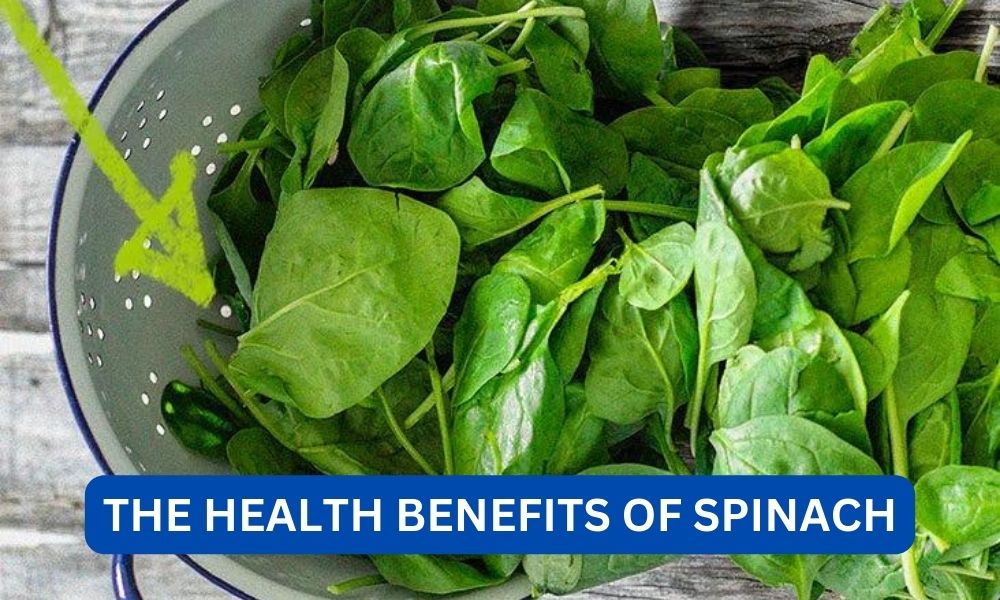Spinach, a leafy green vegetable, has been a staple in many cuisines for centuries. It is believed to have originated in ancient Persia and was later introduced to Europe in the 12th century. Today, spinach is widely cultivated and consumed all over the world, and for good reason. This nutrient-dense vegetable is packed with essential vitamins, minerals, and antioxidants that offer numerous health benefits. In this article, we will explore the various health benefits of spinach and why it should be a regular part of your diet.
Contents
What is Spinach?
Spinach, scientifically known as Spinacia oleracea, belongs to the Amaranthaceae family and is closely related to beets and quinoa. It is a dark green leafy vegetable with a slightly bitter taste and a delicate texture. Spinach is available in two varieties – savoy and flat-leaf. Savoy spinach has crinkly, curly leaves, while flat-leaf spinach has smooth, broad leaves. Both varieties are equally nutritious and can be used interchangeably in recipes.
Spinach is a cool-season crop and is typically grown in the spring and fall. It is a versatile vegetable that can be eaten raw or cooked and is used in a variety of dishes, including salads, soups, smoothies, and stir-fries. It is also a popular ingredient in many Mediterranean, Middle Eastern, and Asian cuisines.
Read:What are the benefits of grapes?Nutritional Profile of Spinach
Spinach is often referred to as a superfood due to its impressive nutritional profile. It is low in calories and carbohydrates but rich in essential vitamins, minerals, and antioxidants. According to the United States Department of Agriculture (USDA), one cup (30 grams) of raw spinach contains:
- 7 calories
- 0.86 grams of protein
- 0.12 grams of fat
- 0.74 grams of carbohydrates
- 0.7 grams of fiber
- 0.81 grams of sugar
- 145 micrograms of vitamin K (181% of the recommended daily intake)
- 58 micrograms of folate (15% of the recommended daily intake)
- 0.81 milligrams of iron (4% of the recommended daily intake)
- 24 milligrams of magnesium (6% of the recommended daily intake)
- 167 milligrams of potassium (4% of the recommended daily intake)
In addition to these, spinach also contains small amounts of other essential vitamins and minerals, including vitamin A, vitamin C, vitamin E, calcium, and zinc.
Health Benefits of Spinach
Spinach is not just a tasty addition to your meals; it also offers a wide range of health benefits. Let’s take a closer look at some of the most significant health benefits of spinach.
Read:What are the benefits of not ejaculating for 30 days1. Rich in Antioxidants
Spinach is loaded with antioxidants that help protect your body against free radicals – unstable molecules that can damage cells and contribute to chronic diseases. These antioxidants include beta-carotene, lutein, zeaxanthin, and flavonoids, such as quercetin and kaempferol. These compounds have been linked to a reduced risk of cancer, heart disease, and age-related macular degeneration.
2. Promotes Eye Health
As mentioned earlier, spinach is rich in lutein and zeaxanthin, two antioxidants that are essential for maintaining eye health. These compounds are known to protect the eyes from age-related macular degeneration and cataracts, two of the leading causes of blindness in older adults. Studies have also shown that consuming spinach can improve night vision and reduce the risk of developing glaucoma.
3. Supports Bone Health
Spinach is an excellent source of vitamin K, a nutrient that is essential for maintaining strong and healthy bones. Vitamin K plays a crucial role in bone metabolism and helps improve calcium absorption, which is necessary for bone mineralization. A deficiency in vitamin K has been linked to an increased risk of osteoporosis and fractures. Therefore, including spinach in your diet can help prevent bone-related diseases.
Read:What are the benefits of eating cabbage?4. Regulates Blood Pressure
Spinach is rich in potassium, a mineral that helps regulate blood pressure by counteracting the effects of sodium. A diet high in potassium has been linked to a lower risk of hypertension, stroke, and heart disease. Additionally, spinach also contains nitrates, which have been shown to improve blood flow and lower blood pressure levels.
5. Aids in Digestion
Spinach is an excellent source of fiber, which is essential for maintaining a healthy digestive system. Fiber helps regulate bowel movements, prevents constipation, and promotes the growth of beneficial gut bacteria. It also helps keep you feeling full for longer, which can aid in weight management.
6. Boosts Immunity
Spinach is packed with essential vitamins and minerals that help boost your immune system. Vitamin C, in particular, is known for its immune-boosting properties and can help prevent and fight off infections. Spinach also contains iron, which is necessary for the production of white blood cells, the cells responsible for fighting off infections.
7. May Help Prevent Cancer
Spinach contains several compounds that have been linked to a reduced risk of cancer. These include flavonoids, carotenoids, and chlorophyll. These compounds have been shown to have anti-cancer properties and may help prevent the growth and spread of cancer cells. Studies have also shown that consuming spinach can reduce the risk of breast, prostate, and colon cancer.
How to Incorporate Spinach into Your Diet
Now that you know about the numerous health benefits of spinach, you may be wondering how to incorporate it into your diet. Here are a few simple and delicious ways to add spinach to your meals:
- Add a handful of spinach to your morning smoothie for an extra boost of nutrients.
- Use spinach as a base for your salads instead of lettuce.
- Sautee spinach with garlic and olive oil and serve it as a side dish.
- Add spinach to your omelets or frittatas for a nutritious breakfast.
- Use spinach in place of basil to make a delicious and healthy pesto sauce.
- Blend spinach into your pasta sauce for a nutrient-packed meal.
Conclusion:
Spinach is a nutrient-dense vegetable that offers a wide range of health benefits. It is rich in antioxidants, promotes eye and bone health, regulates blood pressure, aids in digestion, boosts immunity, and may help prevent cancer. With its versatility and delicious taste, spinach is a must-have in any healthy diet. So, the next time you’re at the grocery store, be sure to pick up a bunch of spinach and reap all the amazing health benefits it has to offer.









